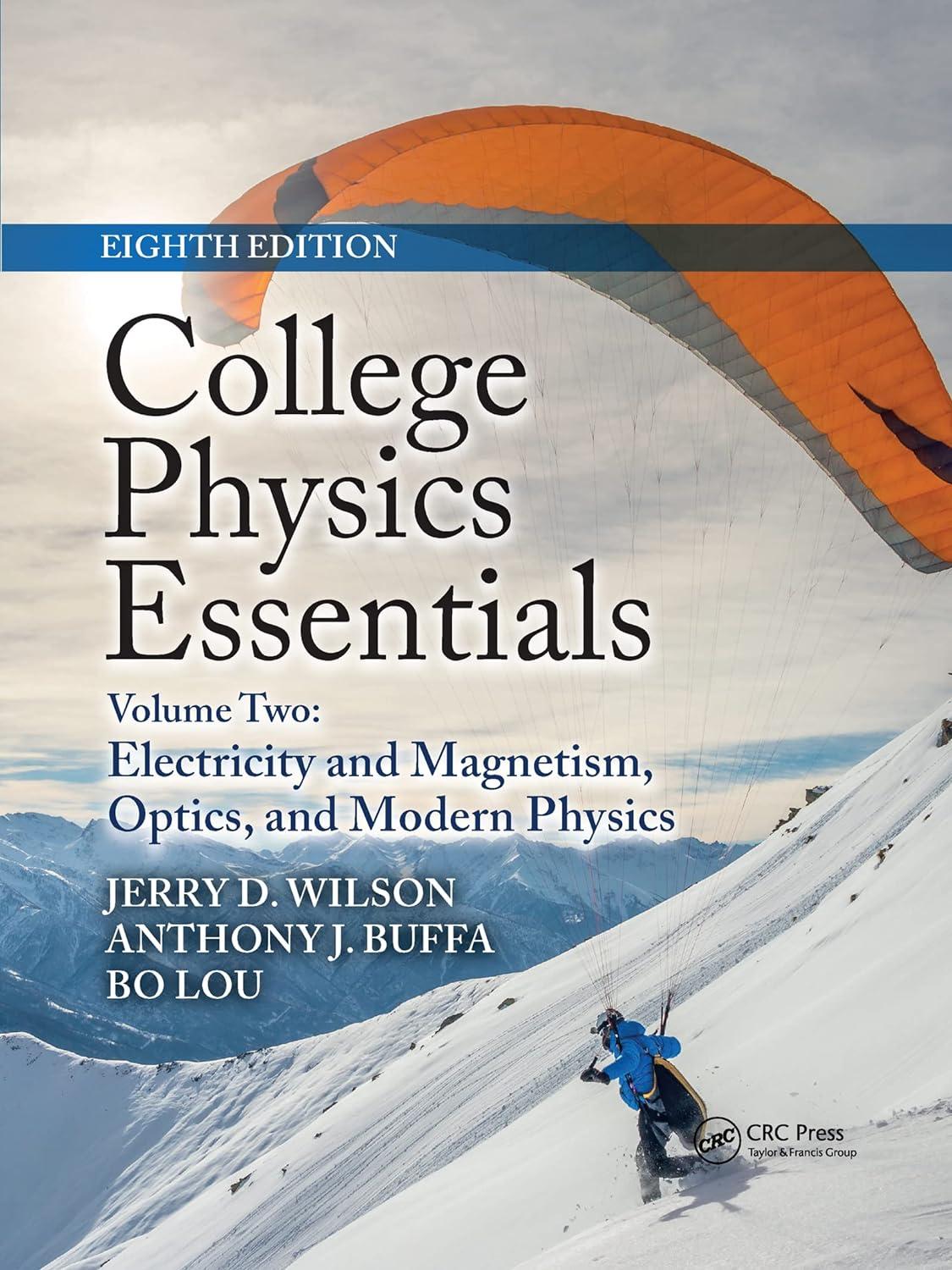A physicist is lowered from a helicopter to the middle of a smooth, level, frozen lake, the
Question:
A physicist is lowered from a helicopter to the middle of a smooth, level, frozen lake, the surface of which has negligible friction, and is challenged to make her way off the ice. Walking is out of the question. (Why?) As she stands there pondering her predicament, she decides to use the conservation of momentum by throwing her heavy, identical mittens, which will provide her with the momentum to get herself to shore. To get to the shore more quickly, which should this sly physicist do: throw both mittens at once or throw them separately, one after the other with the same speed?
THINKING IT THROUGH. The initial momentum of the system (physicist and mittens) is zero. With no net external force, by the conservation of momentum, the total momentum remains zero. So if the physicist throws the mittens in one direction, she will go in the opposite direction (because momenta vectors in opposite directions add to zero). Then which way of throwing gives greater speed? If both the mittens were thrown together, the magnitude of their momentum would be 2mv, where v is relative to the ice and m is the mass of one mitten. When thrown separately, the first mitten would have a momentum of mv. The physicist and the second mitten would then be in motion, and throwing the second mitten would add some more momentum to the physicist and increase her speed, but would the speed now be greater than that if both mittens were thrown simultaneously? Let’s analyze the conditions of the second throw. After throwing the first mitten, the physicist's “system” would have less mass. With less mass, the second throw would produce a greater acceleration and speed things up. On the other hand, after the first throw, the second mitten is moving with the person, and when thrown in the opposite direction, the mitten would have a velocity less than v relative to the ice (or to a stationary observer). So which effect would be greater? What do you think? Sometimes situations are difficult to analyze intuitively, and you must apply scientific principles to figure them out.
Step by Step Answer:

College Physics Essentials Electricity And Magnetism Optics Modern Physics Volume Two
ISBN: 9781032337272
8th Edition
Authors: Jerry D. Wilson, Anthony J. Buffa, Bo Lou






